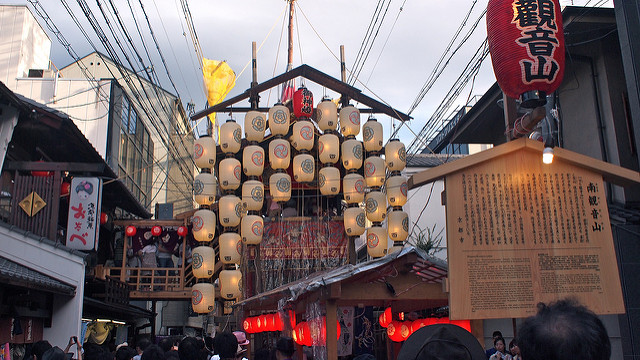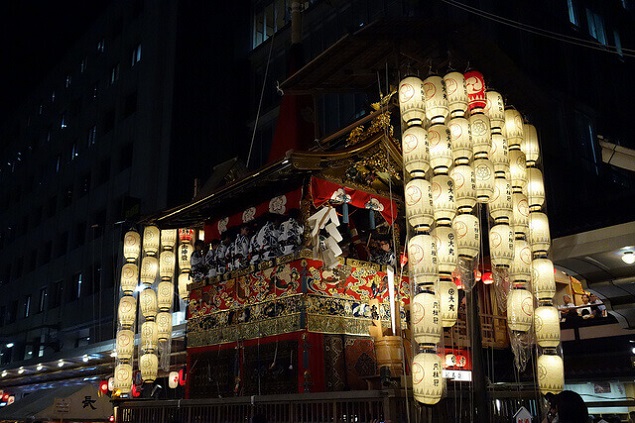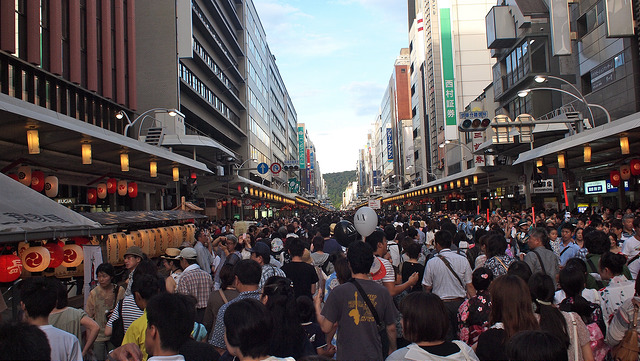
Experience Japan's largest and most historic Summer matsuri, Gion Matsuri
If you are planning a trip to Japan in July, make sure you spend a few nights in Kyoto. The month of July sees one of the biggest event - Gion Matsuri is happening in Kyoto.
This post may contain affiliate links. If you buy through them, we may earn a commission at no additional cost to you.
Gion Matsuri, also known as "Gion-san" by the locals is an annual festival held on the entire month of July. It is known as one of the most famous, biggest and the most historic festivals in Japan. Gion Masturi is a religious event organised by Yasaka-jinja Shrine with more than 1,100 years of history.
hiyang.on.flickr/FlickrThe month-long festival is famous for its 32 beautiful decorated floats, known as 'yama' and 'boko', made especially for the Matsuri and guess what, the festival also features with more than 30 events that keep the city alive the whole July.
Yama floats depict scenes from Chinese and Japanese history and mythology and often bear pine trees, shrines, and mannequins.
The hoko are massive 2-storied, nearly 10-ton combinations of music hall and museum that are hauled by teams of up to 50 men.
During the festival, a bell-like sound will be filled at Kyoto Station and Shijo Street. The highlight of the festival falls on 17th July where the 32 Yama and Boko will be parading along the main streets in Kyoto City. Known as Yamaboko Junko (the grand parade), the parade begins at around 9am with the main Naginata-boko begins its journey to Fuyacho where a sacred child who sat on the float is to cut the sacred rope. This ceremony marks the beginning of Yamaboko Junko.
Each float, two-storied and about 6 meters tall, is topped with a long pole shaped like a spear. Adorned with exquisite craftwork such as woven fabric, dyed textiles and sculptures, these floats are so gorgeous that they are sometimes even described as 'mobile art museums.'
During the parade, children wearing make-up and musicians playing the flute, drums and bells are seated on the second level of the floats. Some floats have dolls propped up on the second level.
This year, Gion Matsuri will also organised a second procession after a hiatus of 48 years. The second procession known as Hanagasa Junko (the flower umbrella procession) will be held on 24th July. It will features about 10 large umbrella floats, which are smaller floats compared to the floats during Yamaboko Junko.
History
Kyoto has suffered on many occasions from all kinds of bad omens, including epidemics, floods, fires, and earthquakes. To keep the spirits from being angry, special protective or goryo-e festivals have been held in Kyoto since ancient times. The first Gion Matsuri, one of Japan's oldest goryo-e festivals, was held in the early Heian period (794-1185) to stop a series of devastating plagues.
Though the festival began as a religious purification ritual, by the end of the Kamakura period (1185-1333) it had also become a way for craft guilds and merchant families to compete in showing off their wealth and taste. Large floats (still known as hoko), musicians, dances, comic plays, and artistic treasures were all part of the celebrations at the close of the 10th century. As the hoko became increasingly elaborate and heavier, large wheels were added so that the floats could be rolled. In the 14th century, the hoko acquired a second story for musicians and page boys. From the late 16th century onwards, as a result of the growing prosperity of Kyoto's merchants, artwork from China, Persia, and even Europe found their way along the Silk Road to the capital.
The information in this article is accurate at the time of publication.












